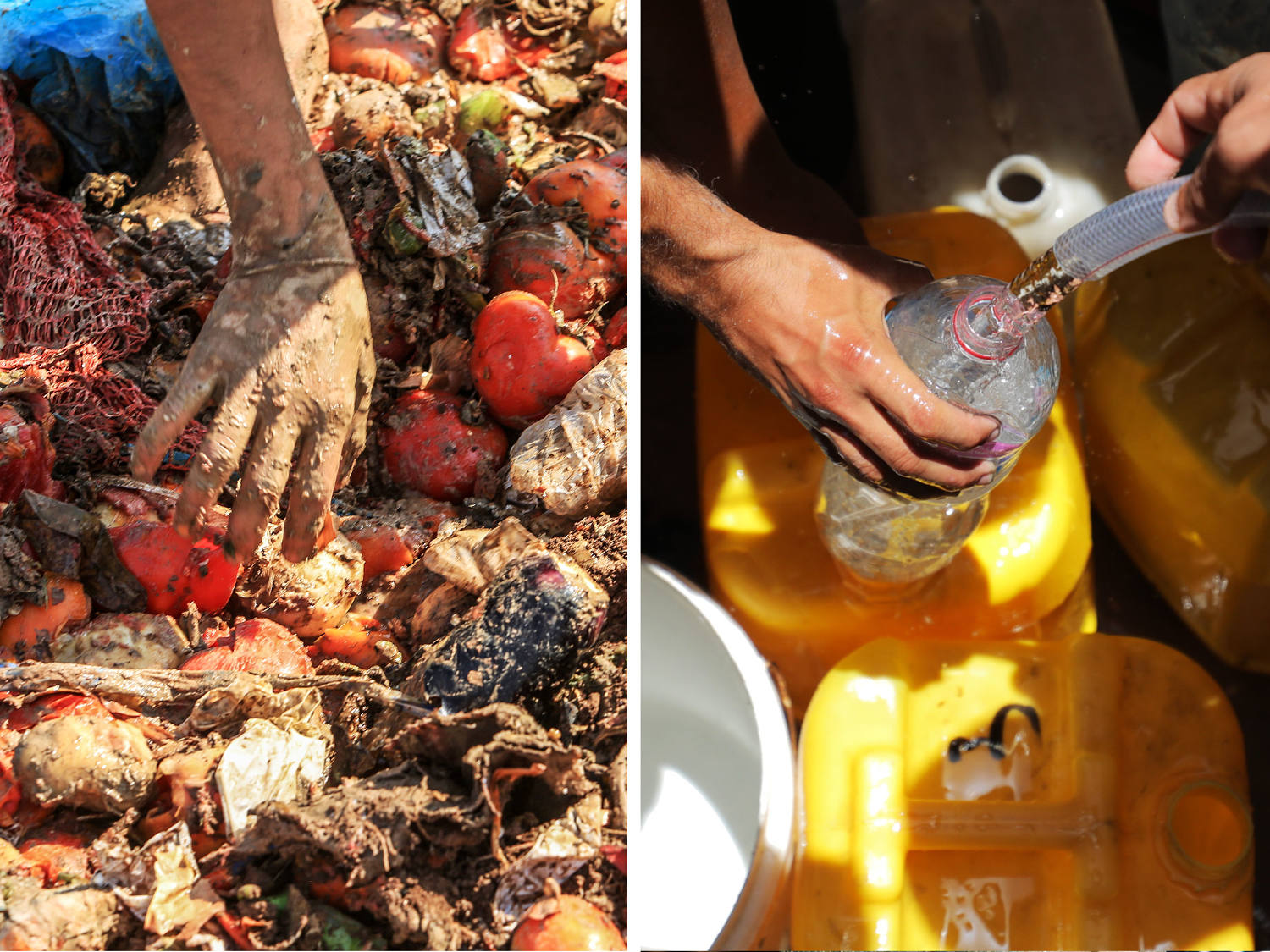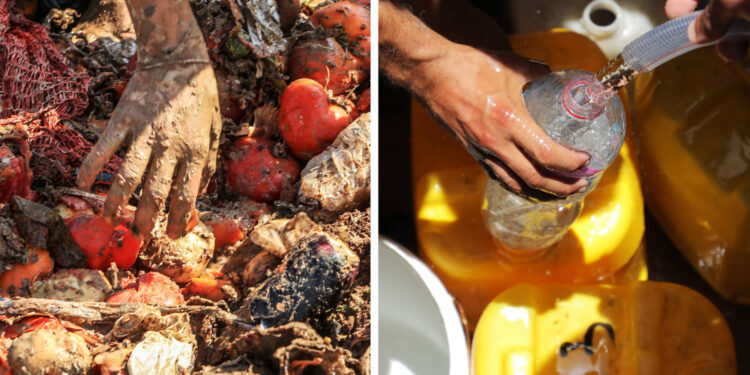
UNRWA also estimated last month that almost 70% of water and sanitation facilities and infrastructure had been destroyed or damaged in Israel’s bombardment, and Waterbridge said trucks like the one in Muwasi were few and far between.
As well as desalination points failing, she said, adding that at least five of the seven water wells that had been operating in Jabalia in northern Gaza were out of action.
Inside the large refugee camp in Jabalia, Amer Alian told NBC News’ crew on the ground Monday that he was struggling to find the most basic provisions.
“How can an ordinary citizen live? He can’t find food or water to drink like normal humans,” he said, before calling on the international community to “have some mercy.”
The crew filmed other Palestinians, including children, filling up jugs with water from a truck transporting potable water to the area. One boy could be seen carrying four empty jerrycans toward the truck, hoping to fill them with water as a little girl raced behind him carrying two containers.
Asked to comment on growing concerns around access to water in the enclave, the Israel Defense Forces referred NBC News to COGAT, the Israeli military body that oversees aid distribution in Gaza, which did not respond to a request for comment.
‘Risk of disease’
Humanitarian groups operating in the Gaza Strip have warned for months of the serious health threat posed by a lack of clean drinking water and by the buildup of untreated sewage in Gaza in the midst of the summer heat.
And an analysis conducted in May by the Global Nutrition Cluster of the World Health Organization found that almost 90% of children under the age of 5 in the enclave were affected by one or more diseases, and 52% had suffered with diarrhea in the past two weeks, as it warned that household access to safe water remained limited.
WHO spokesman Christian Lindmeier said in a phone interview Wednesday that the lack of consistent access to clean water posed a serious risk of dehydration and the spread of disease, including diarrheal disease, in the enclave.
“Access to water is … basic to human life,” he said. “Unsafe drinking water can really be a death sentence.” Although cholera was not present in Gaza, “acute diarrheal disease is just as dangerous,” he added.
Wateridge, of UNRWA, said disease was “spreading everywhere,” amid difficulties disposing of garbage, treating sewage and delivering clean water, as well as humanitarian aid and basic hygiene products, after months of a devastating war.
“The conditions they are living in are appalling,” she said. “There’s no hygiene … people are telling us they have nothing to wash with.”
With many forced to save whatever clean water they can access for drinking, Wateridge said a growing number of Palestinians were turning to using seawater for cooking and cleaning, despite the fact that untreated sewage is being pumped into the Mediterranean Sea with wastewater treatment plants shut down.
“They know the water from the sea is not hygienic in any state,” she said. Using it, she said, is “an act of desperation.”







